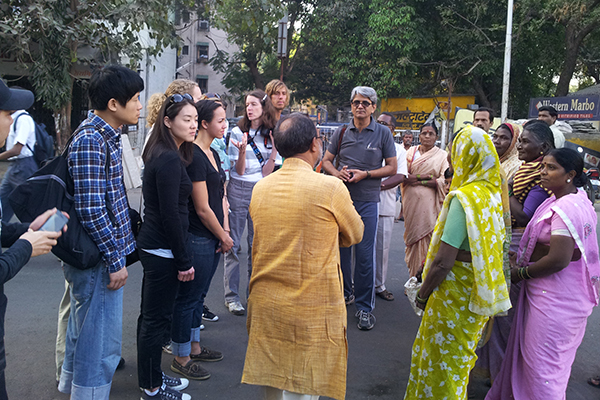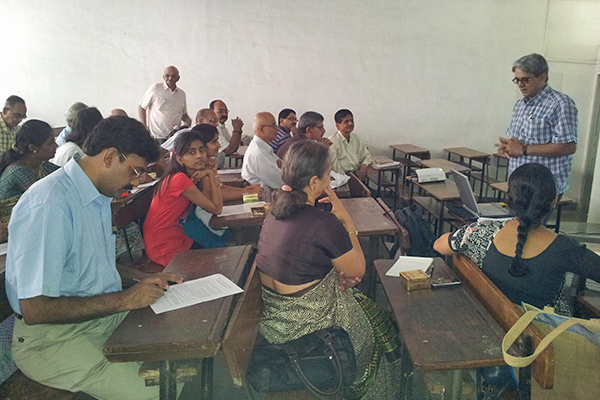Energy alternatives
CEEP doctoral student studies Thane, India, as potential 'solar city'
1:23 p.m., March 5, 2013--According to census reports, the population in Thane, India, has more than doubled in 20 years — from just over 800,000 in 1991 to more than 1.8 million in 2011.
The University of Delaware’s Sanjay Gopal believes this exploding urbanization — in India, as well as in China and Indonesia — is creating new opportunities to consider renewable technologies in these burgeoning cities, which otherwise would consume a disproportionate amount of energy and contribute excessively to ecological degradation.
Global Stories
Fulbright awards
Peace Corps plans
“Rural populations are moving toward urban areas and spinning off new cities at a fast pace. This worldwide growth is an ideal opportunity to incorporate solar and other renewable energy technologies into new infrastructure,” explains Gopal, a doctoral student in UD’s Center for Energy and Environmental Policy (CEEP).
He recently completed a 12-day trip to India with a group of CEEP scholars from UD and Korea University. The group traveled to Mumbai, Thane and the Narmada Valley to examine India’s prospects for sustainable energy, environment and development.
Gopal — a mechanical engineering professor at Veermata Jijabai Technological Institute in Mumbai — is exploring Thane as a “solar city,” or site for the Sustainable Energy Utility (SEU), as part of the International Solar Cities Initiative (ISCI).
The term “solar city” indicates a city attempting deep cuts in energy use through high-productivity conservation strategies and reliance on solar and other renewable to supply the city’s remaining needs. Solar doesn’t strictly refer to sunlight; rather it is viewed as providing the basis for wind, water and other renewable energies. To date, more than 28 cities worldwide have been invited under the ISCI designation to become solar cities.
India is the only country with a Ministry of Renewable Energy at the federal, as well as state levels. Solar concepts there have gained a boost since 2008, when the country set a Development of Solar City program to increase renewable energy use in its urban centers.
As a solar city, Thane would have to reduce the city’s utility bill by 10 percent within five years through energy conservation, energy efficiency or the cities’ own production of renewable energy.
During the trip, Gopal reviewed Thane’s formal energy plan, toured a bio-energy venture that turns food waste into gas that powers a turbine providing electricity to a local hospital, and evaluated public readiness for an energy model shift.
After more than 350 interviews with constituents in government, industry and the community, including women’s groups, professionals and “slum dwellers” on the population’s periphery, Gopal believes Thane is ready, but that a bottom-up approach where community stakeholders embrace the change is necessary to success.
“The Thane community seems supportive of public-public partnerships for effective implementation of the city’s ‘Solar City Project’ and they are hopeful about the CEEP borne SEU model for providing the bottom-up green energy investment necessary for success. A strong citizens’ energy movement will make the change long lasting and sustainable,” says Gopal, whose trip was funded through a global research travel grant furnished by UD’s Office of Graduate and Professional Education.
About CEEP
Launched in 1996, the Center for Energy and Environmental Policy is a leading institution for interdisciplinary graduate education, research and analysis in the field of energy and environmental policy. Its doctoral program was among the first of its kind in the U.S. Housed in the College of Engineering, CEEP currently has 54 students enrolled in its master’s and doctoral programs.
Article by Karen B. Roberts












